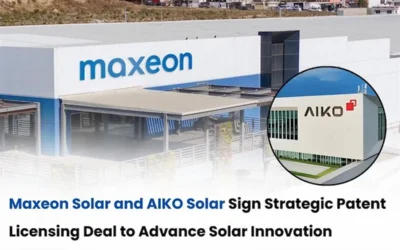
Factors that include patent term, demand in the market, and newness of the invention. You can use a professional patent appraiser or patent valuation systems that will help you determine the right price for your patent. In the fast-moving market of the day, the innovative factor proves to be of immense importance. Patents become powerful tools used for the safeguarding of a new invention or product, enabling its creator an exclusive right in a particular space of time; many entrepreneurs and businesses, and especially the inventors, might not realize the profits accrued through patent selling in India. We shall discuss best practices and strategies as well as the major steps followed for patent sales in India, which will provide maximum benefits it.
Meaning of Patent?
A patent means the official legal right given to an inventor under the law, which gives him rights over his product exclusively. His legal rights keep him safe against making or selling his products without permission, even if anybody makes use of it. Patents typically last for a term of 20 years from the date of filing, and so an inventor gets a wonderful scope to enjoy their product. Patent Selling in India is not only a very good option but is also a very excellent means by which the inventors can attain returns on their intellectual property.
Benefits of Patent Selling in India
The Indian market is one of the biggest markets for technology, innovation, and intellectual property, offering a fantastic platform to sell patents. It has an improving economy and a thriving ecosystem of start-ups, coupled with an ever-expanding market. Here are many reasons why selling patents in India will bring maximum returns.
- High patent demand: There is one among the fastest-increasing patent demand countries by technology and innovative in general by pharma technology, biotechnology, manufacturing as well as all others. Patents are considered as high.
- International Markets Access: Indian is highly networked with Global markets. Given the fact of holding great exporting potential, Sales of patents for Indian companies will provide market accessibility to the worldwide market on one side.
- Innovation Support by Governments: Policy framing has taken place over time with tax incentives, IP protection opening Patent offices, amongst others. Hence, this does encourage some levels of investment within intellectual property.
- Maximization of Profit: A patent could yield one-time income or, through licensing with parties, recurring royalties. A patent sale in India could definitely fetch a healthy return, provided it is marketed and correctly positioned.
Read Also: Patent Licensing vs. Selling: How to Choose the Right Strategy for Your Invention
How to Get Maximum Profit by Selling a Patent in India?
Patent Validity
This is very important before your patent is sold. You must ensure that the patent is valid, effective, and enforceable in India. This includes verifying whether the patent is registered at the Indian Patent Office and has not already expired. This can be achieved by the following steps:
- Patent Search: Find out how unique your patent is through the patent search available at the Indian Patent Office or through any other external agency.
- Patent Status: Check if it is a genuine patent, and it is also in force.
Having a genuine and enforceable patent is the first step of selling a patent successfully in India .
Know the Market and Target Audience
The patent sales in India are mainly governed by market demand. Identify areas of industries or organizations that may be interested in your innovation. Some of the industries where patent sales are in huge demand in India include;
- Technology: Software, hardware, electronics, and telecommunication, etc.
- Pharmaceuticals: Drug formulation, Medical instruments, Diagnostic equipment, etc.
- Biotechnology: Biopharmaceuticals, Genetic engineering, Agric, and other advancements, etc.
- Manufacturing: Automation, new machines, etc.
The more you know about the market potential of your patent, the better you will be able to point out the right buyer or licensee for your product.
Value Determination of Your Patent
You should calculate the value of your patent before selling it. The value is varied with various.
There are different methods that can be used to give an approximate value of the patent:
- Revenue Potential: How much money will be made by licensing, manufacturing, or selling a patent?
- Legal Strength: Is it likely to pass muster in India and other jurisdictions of interest?
- Market Demand: Is there a market for your product?
Knowing your patent’s value will help in negotiation and, thus, the profit to be garnered.
Read Also: The Complete Guide to Patent Acquisition Process in India 2025
Choose the Most Suitable Sales Procedure
There are varied ways in which a patent may be sold or licensed in India. However, two methods have been regarded to be popular. There is:
- Outright Sale In this sale method: The patent is sold to the purchaser, and the title to the buyer who owns patent rights. The person selling patents is paid only for one-time deal.
- Licensing: Licensing gives you the rights to the patent but share ownership with others who would, in turn, pay for royalties when using the patent. This is one of the most known ways of an income stream for the inventor.
The type of invention and long-term financial goals decide what method works best
Get the right buyer or licensee
To sell patents in India for profit maximization, suitable buyers or licensees are required. This calls for effective marketing of your patent. Some ways to reach a buyer are as follows:
- Patent Brokers and Agents: Professional brokers can help you reach buyers and negotiate terms.
- Industry Conferences and Trade Shows: These are places where one can especially display a patent and meet possible buyers.
- Web Patent Marketplaces: You can sell or license your patent from the online sites, including Patent Auction, Yet2, or Idea Buyer.
- Direct Outreach: You reach the target companies or companies that have a potential interest in your technology directly.
Selling a patent highly depends on the network created and the contacts used to maximize its potential.
Negotiate on the Terms for Sale or License
Having ascertained the probable buyer or licensee, it now becomes time to negotiate on the terms: the selling price or the percentage of royalty on the licensing terms, schedules, and for how long the license should run for. For confirmation that the deal is sound and legal, introduce a patent attorney to pen the contract.
Registration of the Sales or Licensing Agreement
The sales and licenses of patents in India are maintained in the record books of the Indian Patent Office. This affords legally claimed protection of your rights, whereby the buyer or licensee becomes the new patent owner. Further, a formal agreement and registration would prevent any further legal disputes in the future.
Read Also: What Are Utility Models and How to Monetize Them Effectively
Conclusion
To sell patents in India and generate maximum profits, proper market research with appropriate planning needs to be done. With a valid patent in hand, an estimation of its value, the right method of sale, and the identification of the right vendor or licensee increase the probability of selling your patent most likely. Whether to sell outright or license, you are well on your way to making the best use of intellectual property by doing the right things in the dynamic Indian market.









